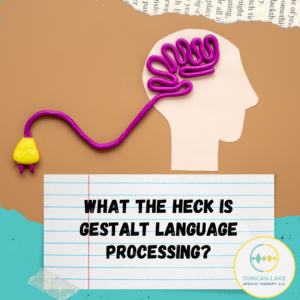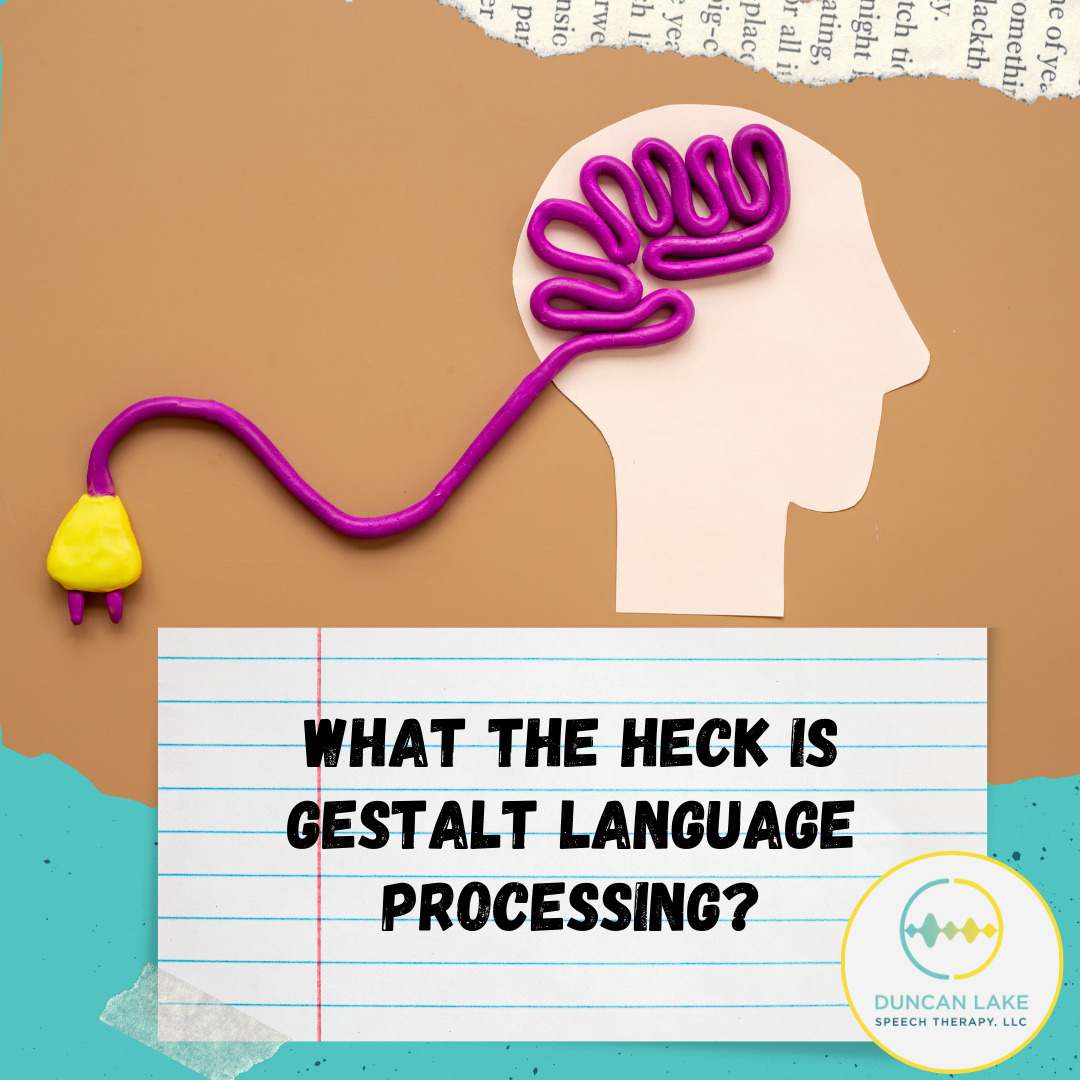by Anna Dubiak, M.S., CCC-SLP
Speech-Language Pathologist
Duncan Lake Speech Therapy, LLC
There are two kinds of language processors in the world: analytical language processors and gestalt language processors (GLP). Analytical language processors learn language from the ground up, building with sounds, to words, to sentences, to full blown conversations! This is the style of language most of us grew up with and most speech therapists learn how to treat.
HOWEVER…..
Speech therapists and the population in general have become more and more aware of another style: gestalt language processing!

What on earth is that?
If analytic processors learn language from the bottom up gestalt processors learn from the top down. GLP kiddos start with bigger chunks of language borrowed from songs, books, or people, and then break it down into smaller words and then back into longer strings of language they are creating on their own.
Tell me more plz…
There are several stages a GLP kiddo goes through before they start producing some of their own independent language.
- Stage 1: chunk stage a child will produce longer strings of speech that may seem unrelated to the task at hand, these gestalt chunks usually come from songs, books, movies, or people in the child’s life (e.g. “oh no it’s a big monster!”, “look, I see it!”
- Stage 2: the child will start to combine these chunks to create new chunks (e.g. “oh no it’s a monster!” + “look, I see it!”= “look it’s a monster”
- Stage 3: child will break down further into single nouns, noun+ noun, and adjective+noun phrases (e.g. “cow”, “barn cow”, “big cow”)
- Stages 4-6: child starts to create original phrases and sentences and add more complex grammar.
Our job is to try and figure out what their phrases mean. For example a kiddo might say “do you need help?” to ask their parent for help because that is what they hear from their parent. They are not asking the parent if they need help! So we must respond to their language with this insight. “I can help you Johnny” instead of “No I don’t need help”. Affirming their language is so important to help them continue to grow and transition through the stages of gestalt language processing.



Recent Comments